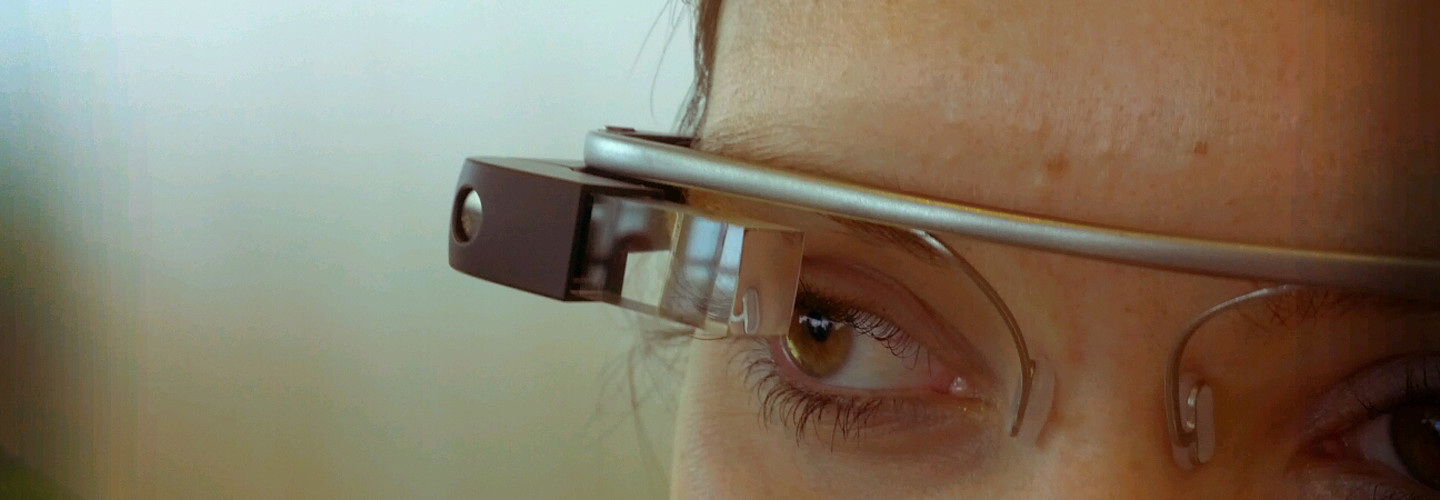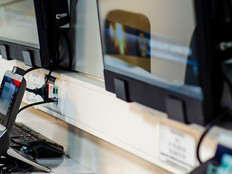NYPD Is Testing Google Glass: What Does It Mean for Data in Law Enforcement?
Data is a double-edged sword for law enforcement.
On one hand, it’s probably the single best way to investigate and incarcerate criminals. On the other, it’s also the most controversial technology of the modern era and a lightning-rod topic. Data-collection tools have been used in law enforcement for decades, but as the technology has improved — or, as opponents would say, become more invasive — law enforcement agencies have to carefully weigh the decision to use emerging technology, like Google Glass, to collect information.
The New York Police Department is wading into unknown territory with a Google Glass beta test, reports VentureBeat:
“We signed up, got a few pairs of the Google glasses, and we’re trying them out, seeing if they have any value in investigations, mostly for patrol purposes,” a ranking New York City law enforcement official told VentureBeat.
“We’re looking at them, you know, seeing how they work.”
While Google and the NYPD aren’t working together, anyone can obtain a pair through the Google Glass Explorer program. Even without assistance or modification from Google, NYPD believes the hardware could help officers in the field be safer and more efficient and give them a powerful data-collection and facial-recognition tool.
Google Glass being used by NYPD officer in Southern Manhattan's 6th Precinct pic.twitter.com/OQ8c9HMtYO
— BrooklyNews.com (@BrooklyNewsCorp) February 12, 2014
What Happens When Technology Is Too Good?
Consider the ongoing controversy surrounding the NSA. Putting aside the privacy concerns, data collection via phone, email and social media is a cost-effective and efficient way to build a case around a potential suspect. The problem is the privacy concerns can never be put away, because the technology will never be completely secure and will also need to be handled by humans at some point. It’s an impossible balance to strike, but it’s a conversation that needs to occur, even at the local level of law enforcement.
In San Francisco, police officers are using smartphones to perform tasks that wearable technology could perform in the future:
The chief information officer of the San Francisco police department, Susan Merritt, said that her department has yet to test the wearable Google computers. But she says the applications for law enforcement are potentially huge.
The San Francisco department currently deploys Samsung S4 smartphones for cops working the street. Merritt says the S4 has become an integral tool because it enables officers to access the department’s criminal database to run warrant checks and pull up mugshots of wanted suspects in real time.
Google Glass could have a similar value proposition for police forces, Merritt said, pointing out that wireless facial recognition software is one potential use.
Even without facial recognition, Google Glass could help match suspects’ names and faces to information contained in various databases that police and federal law enforcement agencies use, such as those from the National Crime Information Center. That would give investigators a handy way to see a suspect’s rap sheet while interviewing them, for instance.
It could also help eliminate the time-consuming, hand-written or typed reports that are the bane of cops the world over by enabling video recording and dictation for digital reports.
Is the adverse reaction to Glass simply the fact that it’s wearable? For the most part, the functions of the device are the same as any smartphone or tablet. Our culture is headed toward an always-on, data-driven future. If citizens have access to these tools, law enforcement will also need access. But can we simultaneously protect the privacy of every citizen along the way? It’s a battle that will play out over the next decade, or even longer. For now, it’s not hard to find opposing views on the topic.
Google Glass actually makes lots of sense for enterprise customers, like NYPD. Logical extension of dashboard camera. http://t.co/dXES54RSkz
— Peter Kafka (@pkafka) February 6, 2014
Sorry if no one is alarmed by the NYPD procuring Google Glass then you're insane.
— Mama Venom (@RealJessieVenom) February 12, 2014
Do you think police officers should have access to Google Glass? Let us know in the Comments.








